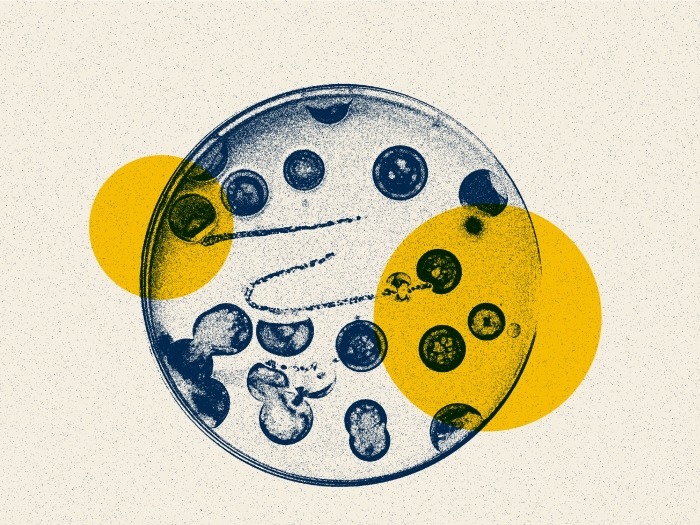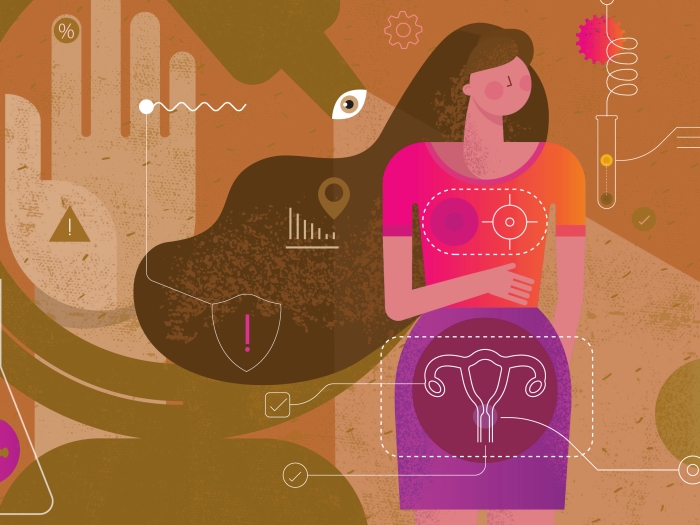Hepatitis, an inflammation of the liver, can be either acute or chronic. Today, unlike in years past, it’s also largely preventable.
1:00 PM
Author |

Inflammation wreaks havoc wherever it settles, but when it's in the liver, it receives a fancy name: hepatitis.
MORE FROM MICHGIAN: Sign up for our weekly newsletter
Types of hepatitis include A, B, C, D and E, and they are typically caused by a virus, says Anna Lok, M.D., director of clinical hepatology, assistant dean for clinical research and the Alice Lohrman Andrews Research Professor in Hepatology in the Department of Internal Medicine at Michigan Medicine.
"The other culprits are drugs, including certain medications and health supplements, alcohol and metabolic liver diseases such as iron overload and fatty liver, which causes an accumulation of fat in people with obesity and diabetes," says Lok. These factors can cause drug-induced hepatotoxicity, alcoholic liver disease, hemochromatosis and nonalcoholic fatty liver disease.
"Hepatitis is really a description that the liver is injured."
That injury, then, can lead to a serious condition. Viral hepatitis is the leading cause of liver cancer and the top reason for liver transplants.
"Some hepatitis is acute, which means the illness is transient, and in most patients the liver recovers," Lok says. "Or it can be chronic, in which case the injury persists and over time some people progress to cirrhosis, meaning severe liver damage, at which case you see liver failure and liver cancer. This is why people should be concerned."
Every year, about 15,000 Americans die from liver cancer or chronic liver disease from viral hepatitis, the Department of Health and Human Services reports.
How to diagnose hepatitis
A simple blood enzyme test or two will confirm a liver injury, says Lok. The aspartate aminotransferase (AST) test and the alanine aminotransferase (ALT) test are the most common. Blood tests also identify the cause of hepatitis. The results sometimes prompt an ultrasound.
"Some people think we will have to do a liver biopsy, and that terrifies them," she says. "We are hesitant to do them now because it's so invasive, so it's a procedure we only use if that is the only method to give us a definitive answer that another test didn't provide."
Hepatitis has made headlines as outbreaks of hepatitis A have plagued various U.S. populations, Lok says.
Since August 2016, Michigan has seen 431 confirmed cases in people ages 20 to 87, resulting in 17 deaths.
The majority of patients in this outbreak have risk factors of homelessness, incarceration or substance use; men who have sex with men are also at increased risk. Nine health care workers (none from Michigan Medicine) have been infected with hepatitis A as part of this outbreak.
Hepatitis vaccines exist to prevent both hep A and B, but not hep C, which is the most common type in the United States, Lok says. Through her pioneering research, though, she helped find a medicinal cure for hepatitis C that is effective in up to 95 percent of cases. Previously the treatment resulted in a cure in less than 50 percent of cases and required much longer use of drugs that have many side effects.
She's hopeful that a cure for hepatitis B, which spreads through sexual contact, from mother to child and by exposure to blood, will be available in the future. Current hepatitis B treatment can control the virus but does not get rid of it.
In the meantime, she stresses the importance of awareness about all types of hepatitis.
"We want people to take care of their liver and get vaccinated," Lok says.
To make an appointment with Michigan Medicine's liver clinic, dial 844-233-0433.

Explore a variety of health care news & stories by visiting the Health Lab home page for more articles.

Department of Communication at Michigan Medicine
Want top health & research news weekly? Sign up for Health Lab’s newsletters today!





